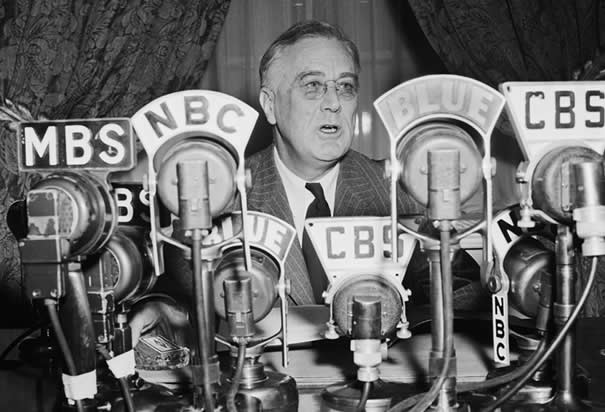Ferdinand Pecora was one of the five original commissioners of the Securities and Exchange Commission (SEC), a New Deal agency created to regulate financial markets [1]. He is best remembered, however, for his time as an investigator for the U.S. Senate Committee on Banking and Currency from 1933 to 1934. During investigations into the activities of big financial institutions, Pecora exposed wide-scale fraud and misconduct in the selling of stocks, bonds, and other financial instruments. These revelations opened the door to many New Deal financial reforms. Many years after the investigations were over, Pecora recalled: “There was a callous disregard of the truth when they offered these bonds to the American investor, a complete and callous disregard of it, that even as I reflect on it now continues to shock me” [2].
Ferdinand Pecora was born on January 6, 1882 in Nicosia, Sicily, to Luigi and Rosa Messina Pecora. In 1886 the family moved to New York City in search of a better life and to escape religious persecution. Unfortunately, Italian immigrants were still “the object of intense bigotry, discrimination, and hatred,” and Pecora heard many a racial slur in his youth. Additionally, the family suffered from poverty and the death of two of their nine children. To help support his parents, Ferdinand delivered milk and newspapers and helped in his father’s shoe shop [3].
Though Pecora faced hardship, he excelled at school. He was class president and valedictorian in grade school, and then graduated from Law School in 1906. From 1911 to 1930 he worked as an assistant district attorney for New York, and continued to assist his family with finances. Pecora also became heavily involved in Progressive politics, and in 1912 he joined the “Bull Moose” Party to support Teddy Roosevelt for president. In both his legal and political work, Pecora gained a reputation for being an excellent speaker. In 1930, Pecora left the government for private practice, but it wasn’t long before he returned to public service [4].
After the Stock Market Crash of 1929, President Herbert Hoover repeatedly asked the New York Stock Exchange to clean up its act – specifically, to rein in “short-selling.” The Exchange’s president, Richard Whitney, was not interested in complying with the president’s wishes, so Hoover reached out to the Senate Committee on Banking and Currency, prodding it to begin an investigation. Senator Peter Norbeck (R-SD) would lead the investigation with fervor, but his efforts failed to gain momentum. Then, in January 1933, Ferdinand Pecora was hired as the committee’s lead investigator, and things changed quickly.
Pecora’s knowledge of the stock market was limited, but he was a quick study and tenacious cross-examiner [5]. Bank executives crumbled under his questioning, revealing a massive tissue of securities fraud, tax avoidance, improper loans, and more. The findings of the investigation shocked the public. Even President Hoover, who had faith in the market system and was loath to flex federal muscle, remarked: “If only part of the things brought out are true, these men have done the American people more damage than all the incidental operations of Al Capone” [6].
After the Wall Street investigation, and a stint as an SEC commissioner, Pecora became a New York State Supreme Court justice from 1935 until 1950 [7]. Afterward, he remained active in politics and private legal practice for many years. He died at age 89 on December 7, 1971, a year after his wife, Florence Louise Waterman, and was survived by his son Louis Wellington Pecora, two sisters, and three grandchildren [8].
Sources: (1)“SEC Historical Summary of Chairmen and Commissioners,” U.S. Securities and Exchange Commission, https://www.sec.gov/about/sechistoricalsummary.htm, January 2, 2016. (2) Michael Perino, The Hellhound of Wall Street, New York: Penguin Press, 2010, p. 240. (3) Ibid., pp. 25-32. (4) Ibid., pp. 33-34; also see “Ex-Justice Ferdinand Pecora, 89, Dead,” New York Times, December 8, 1971. (5) See, generally, note 2. (6) Note 2, p. 190. (7) “Pecora Extolled As He Takes Bench,” New York Times, January 23, 1935; “Pecora Quits Bench To Legalize Race; Charges Vote Deal,” New York Times, October 28, 1950. (8) “Ex-Justice Ferdinand Pecora, 89, Dead,” New York Times, December 8, 1971.
